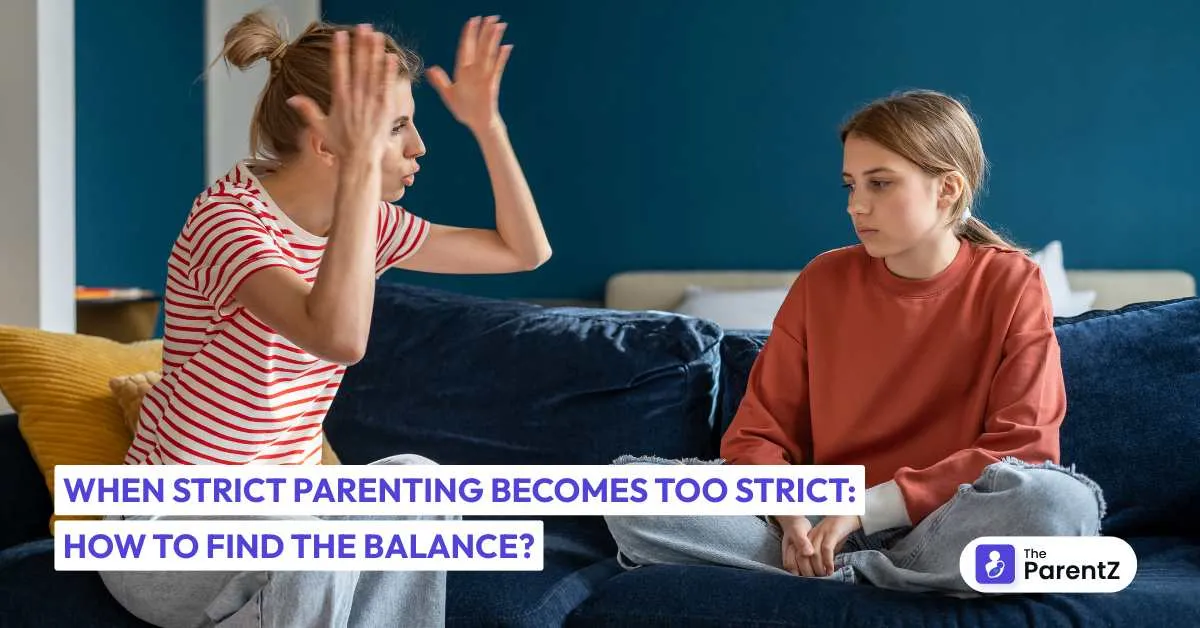Parenting is a delicate balancing act. While structure, discipline, and high expectations can foster responsibility and resilience in children, excessive strictness can stifle their emotional growth and harm the parent-child relationship. Recognizing when strict parenting crosses into harmful territory is essential to nurturing a healthy, supportive environment. Here’s how to identify the warning signs and restore balance.
Signs Strict Parenting Has Become Too Harsh
- Fear Overrides Trust: If your child seems fearful of making mistakes or hides failures to avoid punishment, it’s a red flag. For example, a child might lie about a poor grade rather than risk your anger. Fear-driven obedience undermines honesty and trust.
- Zero Flexibility: Rigid rules with no room for exceptions (e.g., no playdates until homework is done, even if the child is exhausted) can create resentment. Children need opportunities to negotiate and learn decision-making.
- Emotional Withholding as Punishment: Using silence, harsh criticism, or conditional affection (e.g., “I won’t hug you until you apologize”) teaches children that love is transactional, damaging their self-worth.
- Overemphasis on Achievement: Pressuring children to excel in academics, sports, or hobbies at the expense of their mental health (e.g., demanding straight A’s while dismissing burnout) can lead to anxiety or perfectionism.
- Micromanaging Every Detail: Controlling minor choices, like clothing or friendships, prevents kids from developing autonomy. A teen who isn’t allowed to pick their own extracurricular activities may rebel or become overly dependent.
- Punishments Don’t Fit the Behavior: Harsh consequences for small infractions (e.g., grounding a child for a week over a messy room) breed resentment without teaching accountability.
- No Space for Emotions: Dismissing feelings with phrases like “Stop crying” or “You’re overreacting” invalidates a child’s emotional experiences, making them feel unheard.
- Social Isolation: Restricting social interactions (e.g., banning friends or extracurriculars) to enforce discipline can hinder social skills and create loneliness.
- One-Way Communication: If conversations feel like lectures rather than dialogues, children may stop sharing their thoughts. A parent who dominates discussions leaves no room for the child’s voice.
- Physical or Verbal Aggression: Yelling, name-calling, or physical discipline (e.g., spanking) escalates strictness into abuse, causing long-term trauma.
The Impact of Overly Strict Parenting
Children raised in excessively strict environments may:
- Develop anxiety, low self-esteem, or depression.
- Struggle with decision-making due to lack of autonomy.
- Rebel during adolescence as they seek independence.
- Have difficulty forming secure relationships later in life.
- Internalize the belief that their worth is tied to achievements.
Strategies to Restore Balance
- Reflect on Your Intentions: Ask: “Am I prioritizing control or guidance?” Discipline should teach, not intimidate.
- Encourage Open Communication: Create a safe space for your child to express opinions without fear. Use phrases like, “I want to understand how you feel.”
- Set Clear, Flexible Boundaries: Involve older kids in setting rules (e.g., curfews, screen time). Explain why limits exist, and adjust them as they demonstrate responsibility.
- Separate Behavior from Worth: Criticize actions, not character. Instead of “You’re lazy,” try, “Let’s work on time management together.”
- Prioritize Emotional Connection: Balance discipline with warmth. Celebrate efforts, not just outcomes, and spend quality time bonding.
- Teach Problem-Solving: Allow natural consequences when safe (e.g., a forgotten lunch leads to hunger), and help them brainstorm solutions.
- Model Self-Compassion: Admit your own mistakes and show how you learn from them. This normalizes imperfection and resilience.
- Seek Feedback: Periodically ask your child, “Do you feel supported or controlled?” Their perspective can reveal blind spots.
When to Seek Help
If your child shows signs of chronic anxiety, withdrawal, or aggression—or if you find yourself unable to soften your approach—consider family therapy. A professional can help you rebuild trust and adopt healthier strategies.
Final Thoughts
Strict parenting isn’t inherently harmful, but balance is key. Children thrive with structure and empathy, boundaries, and freedom. By fostering independence, validating emotions, and replacing fear with mutual respect, you can guide your child toward confidence and resilience without sacrificing their well-being.





Be the first one to comment on this story.